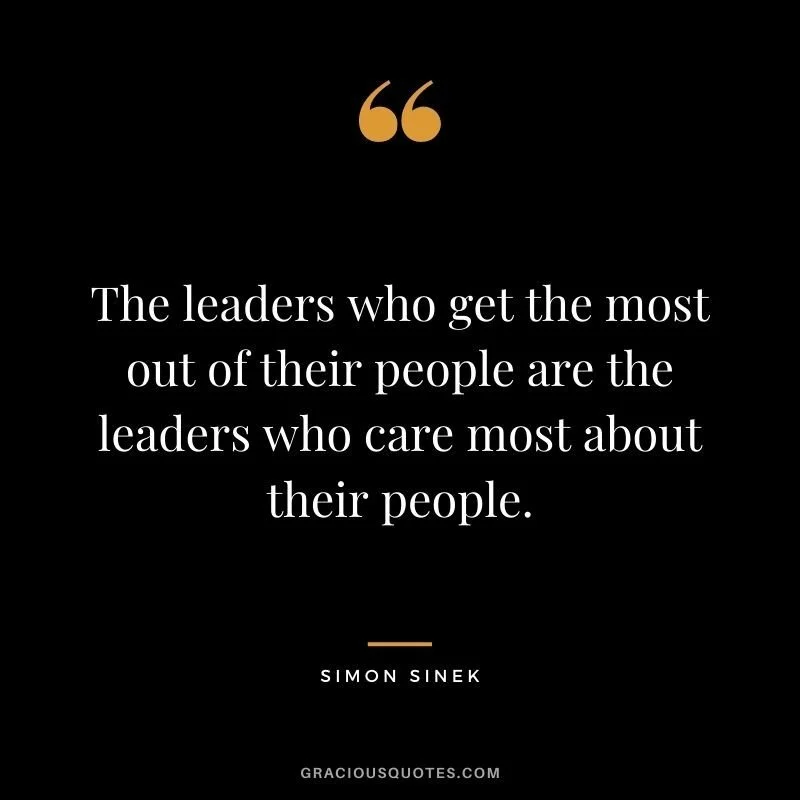Filter by —
The 3Es framework of developing leaders
“The function of leadership is to produce more leaders, not more followers.”
Here are the ‘Three E’s of Developing Leaders’ framework to do so:
How to be courageous
There are many kinds of leaders, but the leaders we remember are those who take a stand.
Here are some steps we can take to develop our courage as leaders:
How to manage your boss
Managing upwards rarely occurs to anyone. But learning to MANAGE OUR BOSSES is important if we want to obtain the best possible results for them, ourselves, and the company. Here are 5 ways to “lead up”.
How you frame a situation matters
How we frame a situation can either enhance its value or diminish it.
How to slam dunk our long-term goals
How Adam Sandler’s Hustle teaches us the 4Ps of character traits we should embody if we want to achieve our long-term goals.
Talking about emotions without getting emotional
“Is being emotional unprofessional? Is it ok to show emotions in the workplace?”
I’ve been asked these questions a few times before and the long and short of it is: Yes, it’s okay to be a little vulnerable at work. But it depends on one condition: competency.
Developing a sense of urgency in your team
One of the most common complaints I hear from my community of leaders is their team members lack a sense of urgency in completing their tasks.
Here are some reasons a lack of urgency in your team could occur and how to remedy them:
Stop trying to rescue your staff all the time
A trusted friend once told me: “Stop rescuing other people to feel good about yourself. I know it feels good to be needed. You think you’re doing a banging job at your workplace but in reality, all this rescuing is limiting your employee’s potential for growth. Ultimately, it will hinder your company’s growth and stifle your development as a leader.”
Find out how to break the rescue cycle.
Not everyone can or should be a leader
Willingness and performance aren’t always indicators of leadership capability: just because someone is an exceptional individual contributor doesn’t mean they’re great at leading and inspiring a team as a manager.
Here are some warning signs when someone is not ready for a leadership position:
Your idea isn’t what wins the pitch
Often when you pitch, it’s not the idea itself that leads to a rejection or a win – it’s how you present it.
Recovering from a first half underperformance
I recently read a quote from Paul Bryant, which said “Don’t give up at half-time. Concentrate on winning the second half.” As we enter the second half of the year, some companies might find that they underperformed in the first half. But don’t give up just yet - there are still ways to recover!
Are you serving or servicing your clients?
In the media and advertising industry, we hear the term ‘servicing’ far too often. ‘Good servicing’ usually translates to responding promptly to clients, clearly addressing their needs, and flawless execution.
On the flip side, ‘serving’ a client sets a totally different standard.
Let me tell you an amazing real-life story to illustrate my point!
Inclusion for introverts
It’s no lie that the world is made for extroverts. Extroverts - tend to have a more noticeable personal flair, being more sociable and passionate than their more introverted peers. These traits allow them to stand out more and thus, enjoy a higher degree of recognition and presence in the workplace. Sadly introverts, usually more cautious and socially sensitive, are not rewarded in the same way.
But in reality both personality types have varying strengths and weaknesses, so this bias favouring extroverted professionals is concerning.
Don’t motivate. Inspire
The simple truth is that leaders can’t actually motivate anyone.
And yet, we still find the self-motivated managers, business leaders and entrepreneurs asking, “My people don’t seem to have the same drive as me. How can I motivate them?”
Stop putting out fires
How can leaders save their team from constant firefighting and challenge them to start thinking about how they can prevent the fires from starting in the first place?
Ask for help
At work, we may not know what to do and clearly would benefit from some help, yet we’re reluctant to ask for it. Instead, we spend hours trying to solve it all by ourselves and eventually suffer in silence. We fear that people would judge us as stupid, weak, needy and incompetent, especially in a competitive work environment - when really, there’s no shame in asking for help when we need it.
Take charge of your life
My friend once told me off for rehashing an incident that happened years ago, “Stop it! How many years have you held on to this? If you want to be known as a reliable leader of your community, stop blaming and start taking responsibility for your decisions. Holding on to this grudge is your choice.”
It was a much-needed slap in the face.
Lead like conductors
A single person, armed with a thin baton, who makes no sound of their own, draws out an unforgettable audiovisual performance from a hundred instrument-brandishing people.
Leading an organization isn’t so different from conducting an orchestra.
Here’s why.
A leader’s most important role
Whenever I am asked this question, I’m unable to give a clear, simple and inspiring answer. Because everything seems important - to provide a vision, to be the strategist, to coach, to network, to innovate, to motivate and the list goes on.
But I received a revelation recently froma podcast sermon I was listening to. It came out of a clear blue sky:




















